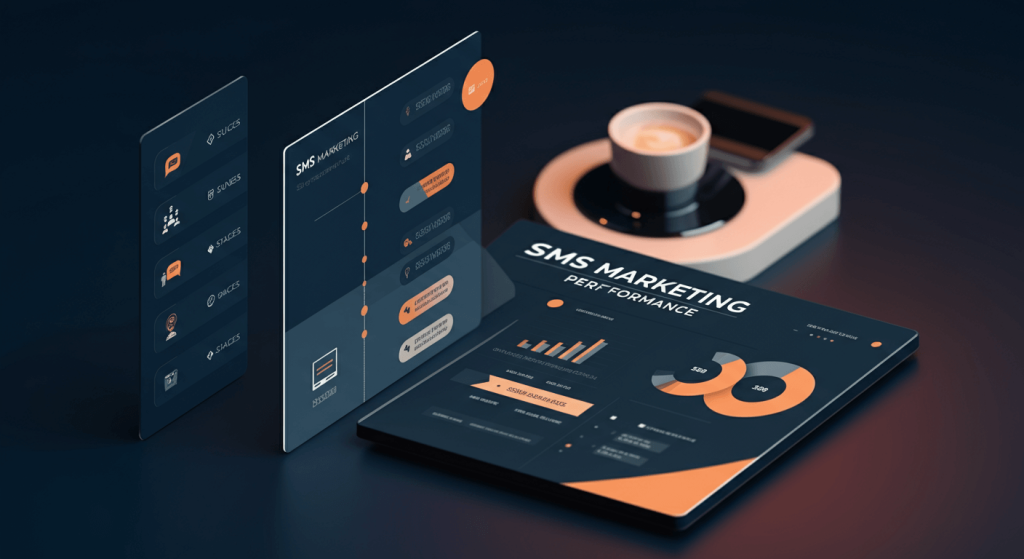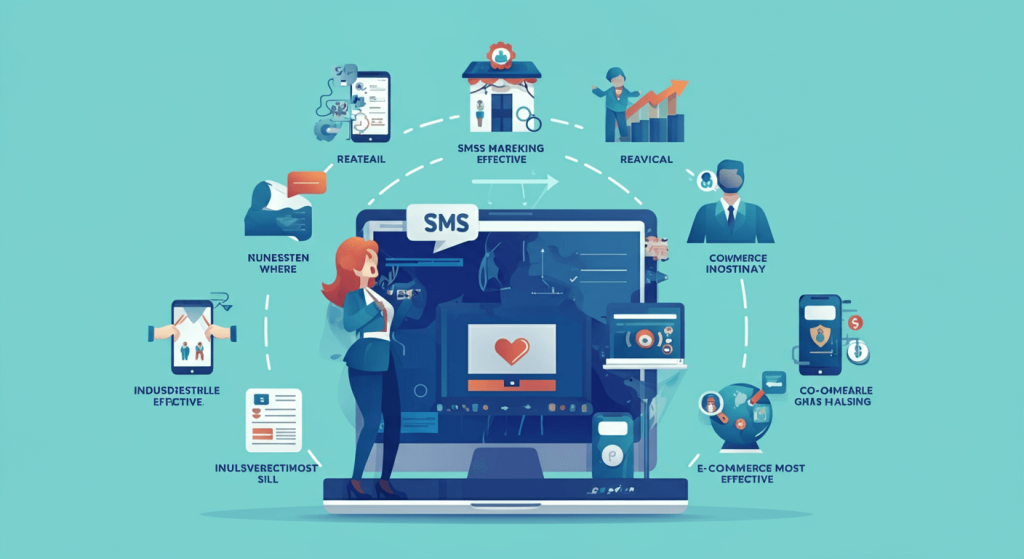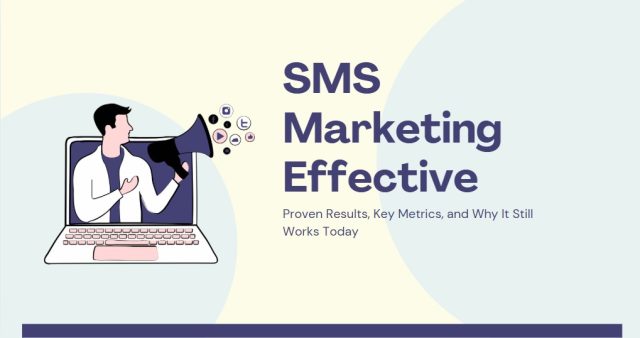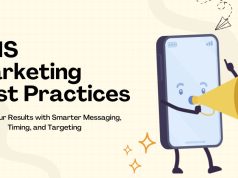SMS marketing has become one of the most direct ways to reach customers, but many businesses still wonder whether text message campaigns actually deliver results. With email inboxes overflowing and social media algorithms limiting organic reach, SMS offers a refreshingly simple approach to customer communication.
This comprehensive guide examines the effectiveness of SMS marketing, providing data-driven insights and practical strategies to help you determine whether text messaging deserves a place in your marketing strategy.
Understanding SMS Marketing Effectiveness
SMS marketing effectiveness stems from its direct, personal nature. Unlike other marketing channels that compete for attention in crowded digital spaces, text messages arrive directly on customers’ phones—devices they check an average of 96 times per day.
The channel’s power lies in its immediacy and simplicity. When customers receive a text message, they typically read it within minutes. This creates unique opportunities for time-sensitive promotions, urgent announcements, and real-time customer engagement.
SMS marketing works particularly well for businesses with existing customer relationships, location-based services, and time-sensitive offers. It’s less effective for complex products requiring detailed explanations or visual demonstrations.
SMS Marketing Performance Statistics

Open and Response Rates
SMS marketing consistently outperforms other marketing channels in terms of engagement metrics. Text messages achieve open rates of 98%, compared to email’s average of 20-25%. This dramatic difference means your messages actually reach customers rather than getting lost in crowded inboxes.
Response rates for SMS campaigns typically range from 15-25%, significantly higher than email marketing’s 2-5% average. Customers respond to text messages quickly, with 90% of messages read within three minutes of delivery.
Click-through rates for SMS campaigns average 19%, compared to email’s 2-3%. This higher engagement translates to more website traffic, store visits, and conversion opportunities for businesses using SMS marketing effectively.
Conversion and Sales Impact
SMS marketing drives measurable sales results across various industries. Retail businesses report conversion rates of 8-12% for SMS campaigns, while service-based companies often see 10-15% conversion rates from text message promotions.
Revenue attribution shows that SMS marketing generates an average return on investment of $45 for every dollar spent. This exceptional ROI makes SMS one of the most cost-effective marketing channels available to businesses today.
The channel’s effectiveness increases when combined with other marketing efforts. Businesses using SMS as part of integrated campaigns report 25% higher conversion rates than those relying on single-channel approaches.
Factors That Determine SMS Marketing Success
Target Audience Preferences
SMS marketing effectiveness varies significantly based on your target audience’s communication preferences and demographics. Younger consumers, particularly millennials and Gen Z, respond exceptionally well to text message marketing when done respectfully.
Older demographics may prefer email or phone communication, though many still engage with SMS when messages provide clear value. Understanding your audience’s preferences helps you determine whether SMS marketing will be effective for your specific customer base.
Business-to-business audiences often respond better to SMS for appointment reminders, delivery notifications, and urgent updates rather than promotional messages. Consumer-focused businesses typically see stronger results with promotional SMS campaigns.
Message Timing and Frequency
The timing of your SMS campaigns significantly impacts their effectiveness. Messages sent during business hours (9 AM to 5 PM) generally perform better than early morning or late evening texts. However, optimal timing varies by industry and audience.
Frequency management is crucial for SMS marketing success. Too many messages can lead to opt-outs and customer frustration, while too few may not generate sufficient engagement. Most effective campaigns send 2-4 messages per month to maintain engagement without overwhelming subscribers.
Emergency or time-sensitive messages can be sent outside normal business hours, but promotional content should respect customers’ personal time to maintain positive relationships and compliance with regulations.
Content Quality and Relevance
Message content directly impacts SMS marketing effectiveness. Short, clear messages with specific value propositions perform better than lengthy or vague texts. Customers need to understand your offer and desired action immediately.
Personalization significantly improves SMS marketing results. Messages that include customer names, purchase history, or location-specific offers generate higher engagement than generic broadcast texts. However, personalization must feel natural rather than intrusive.
Clear calls-to-action are essential for SMS marketing success. Tell customers exactly what you want them to do, whether it’s visiting your store, using a discount code, or calling for more information.
Industries Where SMS Marketing Proves Most Effective

Retail and E-commerce
Retail businesses consistently see excellent results from SMS marketing campaigns. Flash sales, exclusive offers, and inventory alerts generate immediate customer responses and drive store traffic or online purchases.
Abandoned cart recovery through SMS proves particularly effective for e-commerce businesses. Text message reminders about forgotten items achieve recovery rates of 10-15%, significantly higher than email-only approaches.
Product launch announcements and restocking notifications via SMS create urgency and drive immediate action from interested customers. This real-time communication capability makes SMS invaluable for inventory-based businesses.
Restaurants and Food Service
Restaurants use SMS marketing effectively for reservation confirmations, order updates, and promotional offers. The immediate nature of text messaging aligns perfectly with the food service industry’s need for timely communication.
Delivery notifications and order status updates via SMS improve customer satisfaction and reduce support inquiries. Customers appreciate knowing when their food will arrive without needing to call or check apps repeatedly.
Special promotions and happy hour announcements through SMS drive immediate foot traffic during slower periods. Time-sensitive offers work particularly well in the restaurant industry.
Healthcare and Professional Services
Healthcare providers use SMS marketing effectively for appointment reminders, health tips, and prescription notifications. These messages provide genuine value while reducing no-show rates and improving patient compliance.
Professional services like dental offices, salons, and automotive repair shops see excellent results from SMS appointment confirmations and service reminders. The personal nature of these businesses aligns well with SMS communication.
Urgent notifications and emergency communications through SMS ensure important information reaches clients quickly. This capability makes SMS essential for service-based businesses with time-sensitive needs.
Challenges That Can Limit SMS Marketing Effectiveness
Regulatory Compliance Requirements
SMS marketing effectiveness can be limited by strict compliance requirements. Businesses must obtain explicit consent before sending promotional messages, which can reduce list growth compared to other marketing channels.
Opt-out management and record-keeping requirements add complexity to SMS marketing campaigns. Failure to comply with regulations can result in significant fines and damage to your business reputation.
Different countries and regions have varying SMS marketing regulations, making international campaigns complex. Businesses must understand and follow local laws wherever they send marketing messages.
Technical Limitations
Character limits in SMS messages restrict the amount of information you can communicate. This limitation requires careful message crafting but can also force clearer, more focused communication.
Link tracking and analytics capabilities in SMS marketing are less sophisticated than other digital channels. This can make it challenging to measure campaign effectiveness and optimize performance.
Multimedia messaging (MMS) support varies by carrier and device, potentially limiting the visual impact of your campaigns. Some customers may not receive images or videos as intended.
Customer Expectation Management
SMS marketing effectiveness depends heavily on meeting customer expectations for message frequency and relevance. Customers have low tolerance for irrelevant or excessive text messages.
Privacy concerns can limit SMS marketing effectiveness, particularly among older demographics who may be reluctant to share phone numbers or receive marketing messages.
The personal nature of SMS means customers expect higher value from text messages compared to other marketing channels. Generic or low-value messages can quickly lead to opt-outs and negative brand perception.
Best Practices for Maximizing SMS Marketing Effectiveness
Building Quality Subscriber Lists
Focus on building subscriber lists through opt-in methods that clearly communicate the value customers will receive. Avoid purchasing lists or using deceptive practices that can harm your reputation and effectiveness.
Offer immediate value for signing up, such as exclusive discounts or early access to sales. This creates a positive first impression and sets expectations for future messages.
Use multiple touchpoints to grow your SMS list, including your website, social media, in-store signage, and email campaigns. Make it easy for interested customers to subscribe while being transparent about message frequency.
Crafting Compelling Messages
Keep messages short, clear, and action-oriented. Use strong verbs and create urgency without being pushy. Test different message formats to find what resonates best with your audience.
Include clear value propositions in every message. Whether it’s a discount, exclusive information, or convenience, customers should immediately understand why they should care about your text.
Use conversational language that matches your brand voice while remaining professional. SMS allows for more casual communication than formal marketing channels, but maintain consistency with your overall brand messaging.
Integrating SMS with Other Marketing Channels
Combine SMS marketing with email, social media, and other channels for maximum effectiveness. Use SMS for urgent or time-sensitive communications while leveraging other channels for detailed information.
Cross-promote your SMS program through other marketing channels to grow your subscriber base. Include SMS opt-in opportunities in email newsletters, social media posts, and website content.
Coordinate messaging across channels to avoid overwhelming customers while ensuring consistent communication. Use SMS to drive traffic to detailed content on your website or social media platforms.
Measuring SMS Marketing Effectiveness
Key Performance Indicators
Track delivery rates, open rates, click-through rates, and conversion rates to measure SMS marketing effectiveness. These metrics provide insights into campaign performance and areas for improvement.
Monitor opt-out rates and subscriber growth to gauge long-term campaign health. High opt-out rates may indicate poor message relevance or excessive frequency.
Measure revenue attribution and return on investment to understand the financial impact of your SMS marketing efforts. This data helps justify campaign costs and guide budget allocation.
Testing and Optimization
A/B test different message formats, timing, and calls-to-action to optimize SMS marketing effectiveness. Small changes in wording or timing can significantly impact campaign performance.
Test message frequency to find the optimal balance between engagement and customer satisfaction. Monitor engagement metrics and opt-out rates as you adjust sending frequency.
Analyze customer feedback and responses to understand what drives engagement and what causes frustration. Use this information to refine your SMS marketing strategy continuously.
The Future of SMS Marketing Effectiveness
SMS marketing continues evolving with new technologies and customer expectations. Rich Communication Services (RCS) messaging offers enhanced capabilities like images, videos, and interactive elements that could improve effectiveness.
Artificial intelligence and machine learning are improving SMS marketing personalization and timing optimization. These technologies help businesses send more relevant messages at optimal times for individual customers.
Integration with other digital channels and customer data platforms is making SMS marketing more sophisticated and effective. Businesses can leverage comprehensive customer insights to create more targeted and valuable text message campaigns.
Maximizing Your SMS Marketing Success
SMS marketing proves highly effective when implemented strategically with clear objectives, quality content, and respect for customer preferences. The channel’s direct nature and exceptional engagement rates make it valuable for businesses seeking immediate customer communication.
Success requires understanding your audience, complying with regulations, and consistently delivering value through your messages. Businesses that master these fundamentals often see SMS marketing become one of their most effective customer communication channels.
Start with a clear strategy, build your subscriber list organically, and focus on providing genuine value to your customers. With proper execution, SMS marketing can become a powerful tool for driving engagement, sales, and customer loyalty.
Exploring whether SMS marketing is effective can offer valuable insights for your communication strategy, especially when combined with an understanding of why seasonal products matter for business success.









